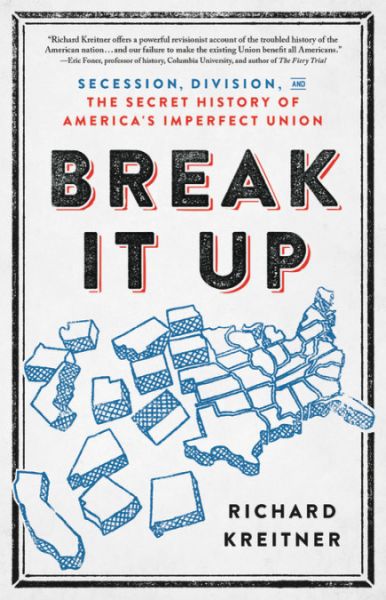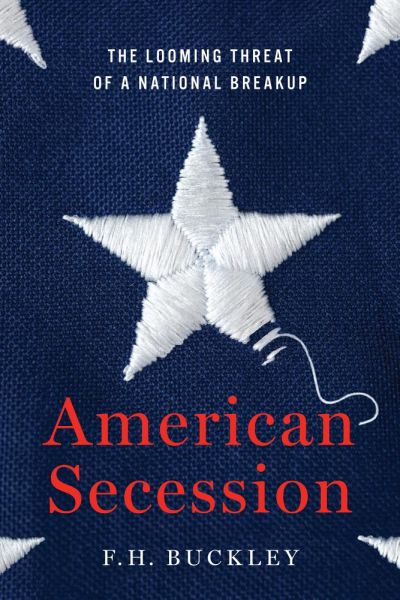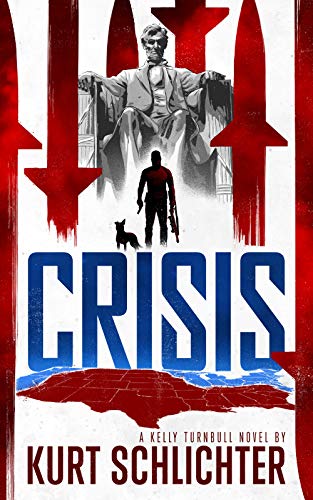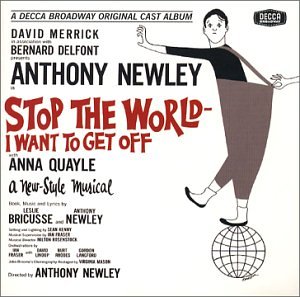Why I Vote Republican
Responding to an RNC Mailing
The RNC chairwoman Ronna McDaniel sent me a form and return-envelope to use to pay my Party dues and renew my membership. The form contains pep-rally language used by any democratic nation on the face of the earth to coax defeated believers into action. The "REPUBLICAN NATIONAL COMMITTEE" banner appears at the top of the page, and the image of an eagle beside it, with a beak big enough to bend steel. I hope it works to coax other believers.
The Republicans need my dues money to fight the "Far Left's $3 billion dollar money machine and the dishonesty of Democrat partners in the liberal media." The dues will help the "Republicans in Congress lead the fight to stop Joe Biden's Big Government Socialist agenda from advancing."
I hope that my reader, as he scans this post, understands that the elite-Democrat class loathes and mistrusts the rank-and-file Republican ignoramuses; and that, conversely, the rank-and-file Republican patriot suspects the Democrat-elite of crass, bitchy, anti-American intentions.
That leave us with a government that does not function as it should. The Republicans have a good plan. It works for us and should work for everybody; but our leaders in Congress have to concede too much of it to Democrats in order to get anything done. The concessions leave us with just fragments of the original plan.
William F. Buckley described the relationship between the political parties as "intra-mural bellicosity." This stand-off existed for most of his lifetime. Now it has reached a crisis level that would leave Buckley stunned. Neither party can steer effectively if they have just half the electorate with them. Buckley played host to his own TV show Firing Line, and kept the dialogue erudite and contentious but polite. Buckley died in 2008, and his decent war-of-words format passed with him. The war of words today sounds more like war than words, more bellicose than erudite. Mounting frustration means that something in this set-up has to give.
Dividing the country: a left-wing view
Dividing the country: a reactionary view
Dividing the country: a fictional view
My reader should conclude, at any rate, that the U.S. must divide now and create new countries, to allow the new nations to retire the mindset of intra-mural bellicosity and realize that the real bellicosity comes from abroad, that what we have in our country is a tempest in a teapot compared to threats abroad. It still overwhelms the morale of our own people, and arouses a base and almost perverted kind of paranoia. We need to move away from that range of emotions and let unity and a singleness of purpose renew our spirits, and reorient our national priorities—Republican and Democrat—in separate nations.
I can think of a few reasons why a division hasn't happened, and may never happen. For one thing, politicized Americans in either party have already defined their enemy as the people in the opposing party. Sending them off to their own country does not satisfy the need for payback, nor alter the sense of an enemy class. It complicates the the task of politicos, which they do not want. They need enemies like they need their morning joe; so we have to persuade the politicos to move beyond that. They need to redefine their sense of enemies according to geo-politics, not the practiced, familiar kind of homie-politics.
For politicos, not having an enemy means, most practically, that they no longer have someone to blame for their problems, except their friends. The enemies have gone to live elsewhere; so they have no one but friends around them. This presents a seldom-mentioned drawback to achieving unity and singleness of purpose as a national entity. We no longer have a favorite scapegoat, and have to rely on ourselves.
Do we still have the courage to move forward and divide the nation? The necessity of a division is irrefutable. The only question that remains is, can we? A question of this magnitude lays bare a person's soul and confronts Americans with a set of challenges that are as much personal as philosophical and logistical. At any rate, ask not whether we should divide, but rather, can we divide?
The only way the parties can divide the country is to show what they can offer their party's faithful voters a coherent, functioning politic by themselves. They need to tell their voters why a division is doable and back it up with party history. Whatever the parties say about themselves and each other, the division will define irrevocably the content of their characters, rather than the color of their political skins. The decision to divide, or not to divide, would tend to validate or invalidate their party's talking points and policies. Ivory-tower intellectuals in both parties have to start working to that end. Haven't we had enough? Aren't we ready to prove ourselves?
For the time being, however, I have to put some money in the RNC, self-addressed envelope and send it back. I have to wait until other Republicans have had enough of the stalemate. At that time, I can only hope we still have enough courage to go our own way.
Us vs. Them: Wooing our Future Citizenry
Democrats accuse Republicans of promoting "Trickle-down Economics." Of course, I as a Republican would retort, "What's worse, trickle-down economics, or a Democrat policy of Snatch-away Economics?" We can continually pin negative blame-tails on each other's donkeys. Aren't we ready to say, "Enough is enough!" Blame-tails do not fix problems. They only ratchet up the animosity-level.
We have to take an important preliminary step and define ourselves independently of each other. Who are we, when we are alone? Republicans have a definite advantage on this point. Until the Trump victory in 2016, I did not think I had a psychological profile of the average Republican, but when 50% of the voters chose Trump, I knew they had defined themselves by voting, like the bent nail in a bench, catching on the seat of your trousers. Republicans caught a lot of grief when they voted for Trump. If they did nothing else, they tell me they are ready to jump ship.
So why do Republicans have so much confidence and contrariness? Because none of our root positions has changed. Here they are in a nut-shell:
- The first and most important: If you make money legally, you get to keep most of it. We take it for granted, but not very many countries permit people to become rich. Nations that allow people to get rich, they also rank highest in the standard-of-living categories. Meaning that, rich people want to build second-homes, employ staff, buy boats, and a lot of other things.
All that buying and selling provides an opportunity for other people to grow wealthy. No other nation in the world demonstrates how to do it like the US. We cannot keep people out. They find a way to get to America, and when they settle in, they do not want to leave. They find a way to plug into American free-society thinking and make a new life for themselves.
- Republicans are nationalists. The term has accrued a lot of bogus negativity, as if anyone who loves the US is a Nazi or a Fascist. Republicans love America because it gives them a safe place to live, a liberal environment in which to practice a trade, and constitutional protections. We don't want the Democrats to mess with the terms of the Constitution. We like it as it is: the rule of law instead of the rule of men.
As nationalists, Republicans work hard to keep the public safe, so they empower law enforcement, favor military preparedness, and utilize both to provide the nation with secure borders. The cities from medieval times that survived did so because they built walls around themselves for protection. Anyone who entered the city had to check in at the city-gates. Some of those cities in Europe have maintained sections of the wall; others have preserved both walls and gates. They give us an important perspective on surviving in a belligerent world.
- Republicans love wealth. They catch a lot of moralistic flack from Democrats for doing so, but they understand better than Democrats that society only moves forward if it has the financial wherewithal to do so. If society doesn't have the wherewithal, it can't upgrade anything. The older or obsolete infrastructure will have to do.
Research and development—so vital to industry—depends on the available capital to let it move forward. Often enough, Republican leaders do not comprehend this basic about an advanced society. Democrats, on the other hand, remain ambivalent toward wealth, too focused on payback against the wealthy to understand it.
- Also, Republicans like wealth to remain private. They also like the infrastructure of the nation to remain private, so that many people control it. Many people can make decisions, wealth remains in many places, and they have to compete for customers—do it faster, better, and cheaper. The depth of talent in this nation always amazes me. Many of my old classmates in high school and college have done wonderful things with their lives. Others have failed utterly. I have known many failures myself, but I also believe you can't have the sizzling successes unless you allow for failure as well. It's the price of freedom, that we let people live their own lives.
Who really wants government services? Who hasn't waited for hours trying to renew a driver's license? Who hasn't waited for hours at the Social Security office? And all you get is your own money back. You paid for the privilege of Social Security, and if you live long enough, you might get all of it back. You could do better with it, if you only put it in a savings account at a bank. You could do much better investing it into something. Grow your wealth on your own terms with your own initiative, rather than trust in an impersonal bureaucracy to do it
In Search of the Holy Compass
I have never liked political cheerleaders, and I am uninterested in the old rhetoric of partisan politics. Trump lost the election; Rush has died. Where do we go from here? Many Republicans have not a clue what to do next. Many of them would like to stop the world and get off; so they can spend time filming their dogs and cats who act like humans.
Americans can muddle through any problem—not solving it at all, just allowing time and routine to cover over the wounds and forcing a later generation to solve it or just to capitulate. The solution for both Republicans and Democrats—who, after all, have a similar problem—does not involve thinking outside the box, but instead imagining a bigger box. Mostly we should resolve to get off the Democrat world. Take a ride in our own world. Let it rip!
Our traditional stance toward problem-solving and policy-making will carry the same parameters, even if the nation divides, and we govern ourselves. The character of the party, on the other hand, will need to evolve. A philosophy will still define the Grand Old Party, but it will become mother to a new generation of parties. Up to now, we've called them "factions," "wings," or worse things. These factions will have to mature into political parties in their own right, and think of themselves as competitors for a national audience. It will involve politicking on a whole new level.
Fitness to Govern
The film version of Tinker, Tailor, Soldier, Spy came out in 2011 and fell flat on its face. From the start, the film's director Torsten Alfredson changed the plot of John le Carré's novel. Tinkering needlessly with such a high-class work of fiction by one of the better novelists of the 20th century, did not sit right by me. I complained about it to anyone who would listen.
I ran into a problem. No one wanted to hear the real story. I tried to talk to friends and family about it, and they shut me down. "Yeah, I know," they said. "I saw the movie." I tried to tell them the movie dumbed down the story "This is what really happened. This British agent goes to Czechoslovakia to help a Czech general defect. But it was a trap, set up by the Russians, and he got shot."
One friend actually put his hands up defensively, like "Don't mess with me. I saw the movie." That fixed it for him. It was over his head, just crooked government spooks. His reaction reminds me of the movie, They Live! directed by John Carpenter, about aliens who control the humans with subliminal messages: "Stay asleep!" and "Watch TV!" Don't think too much!
Needless to say, my friend is a Republican. That he did not have the mental presence to deal with the issues of Tinker, Tailor bothered me a lot. He had seen the movie and it counted as little more than another Netflix rental. Too many Republicans reacted to Tinker, Tailor as he did. If push comes to shove, they would rather stop the world and get off or wait for the biblical End Times, instead of trying to understand how the real world works and address the problems.
Trump lost and Rush died. If we believe that the Constitution, national defense, and a capital-based economy are good things, and that we should preserve those advantages for future generations, then we have to develop a fitness to govern ourselves. We can only do that if we understand how our system works, and why it is better than anyone else's, to help enable our future as a freedom-loving society.




